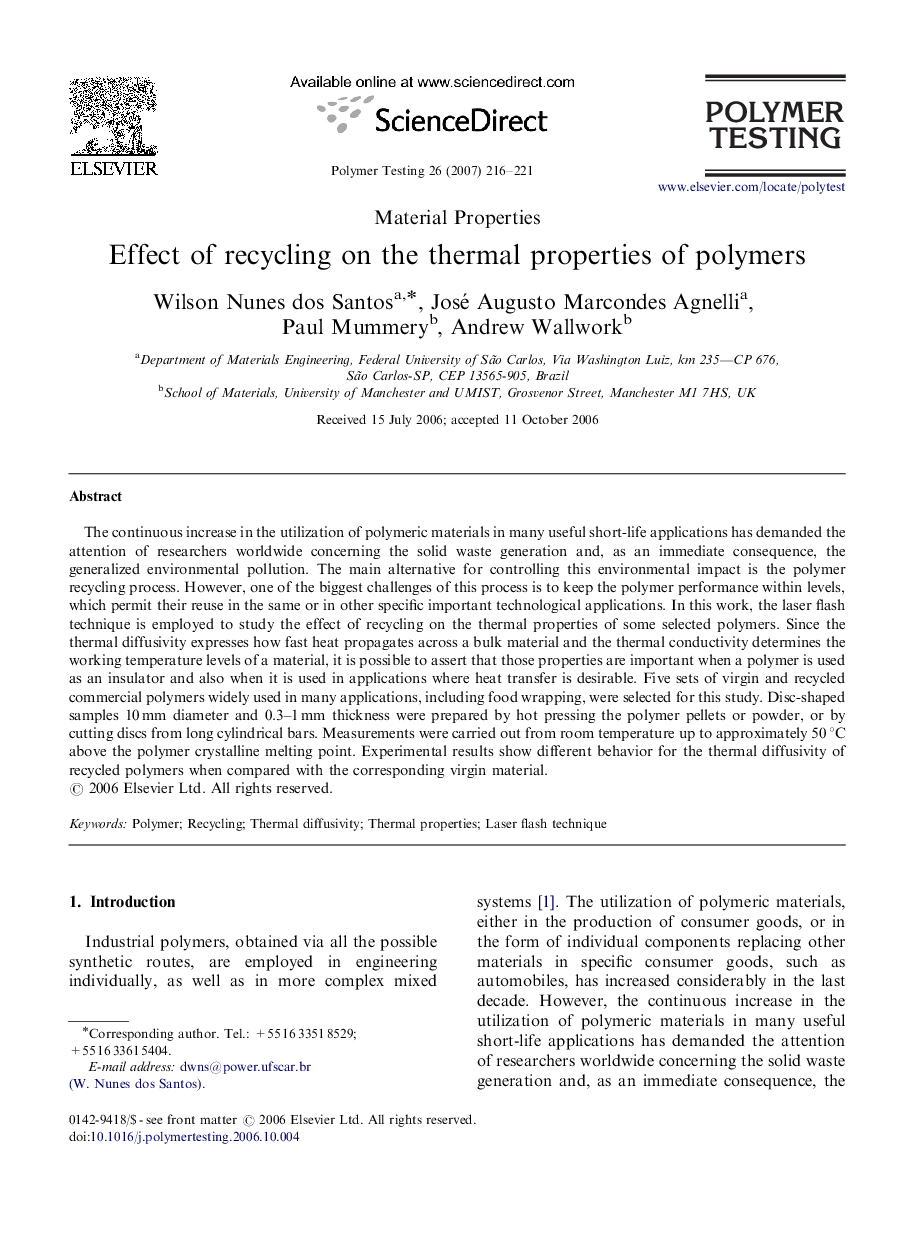| Article ID | Journal | Published Year | Pages | File Type |
|---|---|---|---|---|
| 5207508 | Polymer Testing | 2007 | 6 Pages |
Abstract
The continuous increase in the utilization of polymeric materials in many useful short-life applications has demanded the attention of researchers worldwide concerning the solid waste generation and, as an immediate consequence, the generalized environmental pollution. The main alternative for controlling this environmental impact is the polymer recycling process. However, one of the biggest challenges of this process is to keep the polymer performance within levels, which permit their reuse in the same or in other specific important technological applications. In this work, the laser flash technique is employed to study the effect of recycling on the thermal properties of some selected polymers. Since the thermal diffusivity expresses how fast heat propagates across a bulk material and the thermal conductivity determines the working temperature levels of a material, it is possible to assert that those properties are important when a polymer is used as an insulator and also when it is used in applications where heat transfer is desirable. Five sets of virgin and recycled commercial polymers widely used in many applications, including food wrapping, were selected for this study. Disc-shaped samples 10 mm diameter and 0.3-1 mm thickness were prepared by hot pressing the polymer pellets or powder, or by cutting discs from long cylindrical bars. Measurements were carried out from room temperature up to approximately 50 °C above the polymer crystalline melting point. Experimental results show different behavior for the thermal diffusivity of recycled polymers when compared with the corresponding virgin material.
Related Topics
Physical Sciences and Engineering
Chemistry
Organic Chemistry
Authors
Wilson Nunes dos Santos, José Augusto Marcondes Agnelli, Paul Mummery, Andrew Wallwork,
